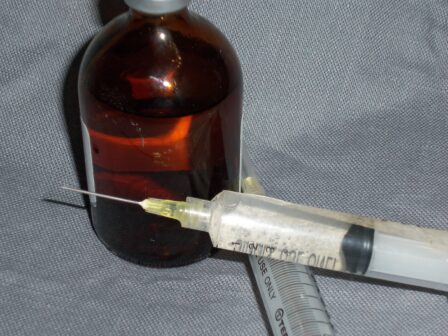Metals, Medicines and Quackery
For Halloween and Day of the Dead, we like to access scary scenarios to entertain ourselves. Here is a one that gives me chills: “quackery.” But first, let’s get some context. Metals are not all bad medicine. Minerals and metals have a long history of use for health. The classic recommendation for eating “deep green, leafy vegetables” is primarily based on the content of a mineral called magnesium that is in the chlorophyll that makes plants green. Other plants in nutrition and healing are promoted for their high levels of essential nutrient minerals/metals such as iron, potassium, calcium and phosphorus that build bone, muscle and nerve tissue. The herb, stinging nettle and sunflower seeds are famous for high levels of zinc that is useful in stimulating the immune system against cold virus, as well as treating prostate swelling. Plant-based medicine is often a way of accessing needed minerals through plants that are especially good at extracting them from the soil and making them bio-available to us.
Some trace minerals are beneficial in small amounts, but toxic in larger doses. Copper and selenium are examples of this effect. It is always possible to get too much of a good thing.
Then, there are metals that are just plain toxic to life, but somehow get used anyway like mercury and arsenic. This started a long time ago and persists, like an urban legend of horror, into current times. In ancient Greece, no less a personage than Paracelsus, one of the fathers of modern medicine, was noted for the controversy that he caused when he used a salve containing mercury to treat a syphilitic rash. The patient’s rash went away, but the colleagues of Paracelsus claimed that he had only treated the symptom and not the cause. The use of mercury for venereal diseases continued into the 15th century in Europe. There are several versions of how this practice came to be called “quackery.” One says that “quacksalber” was the common term in Germany for mercury; it meant quick (fluid) silver (shiny white metal). Another version tells us that in middle ages the Dutch, word “quack” referred to shouting and “salver” was the word of ointment or salve; the implication was that someone was proselytizing publically and loudly about their supposed healing product, one often containing mercury.
Whichever version you choose, the word “quack” became associated with the use of a toxic metal, mercury. The frequency and durability of this use of mercury for venereal disease resulted in a saying during America’s civil war era: “A night with Venus, a lifetime with Mercury.” All the way up to 1990, mercury has been used as a preservative in medicines in the U.S., specifically in vaccines. At that point, public outcry forced the government to have it removed from vaccines. After all, if we cannot eat swordfish due to unacceptable levels of mercury contamination, then the even-higher levels used in vaccines had to be addressed.
Here is the scary part: it is not really gone from vaccines. If you make an appointment with a doctor and specifically request a “single dose” vaccine, you have a pretty good chance of avoiding the mercury; just be sure you ask. If you go to a public vaccine clinic, you will probably get a mercury-preserved version of the vaccine that is commonly used in the large dose batches. If you get your vaccine abroad, you will almost certainly get the highly mercury-preserved version of the vaccines that are being exported to other nations by Big Pharma of the U. S. If you’d like to know more about the history and current research on mercury in modern medicine, take a look at these websites:
https://worldtruth.tv/10-outrageous-facts-about-vaccines-the-cdc-and-the-vaccine-industry-dont-want-you-to-know/ or.
https://vran.org/about-vaccines/vaccine-ingredients/vaccines-mercury-and-genetic-change/
As you are sitting around telling scary stories, you may want to consider whether your doctor is practicing “quackery” when offering you vaccines. It is no treat.
Category: Health & Fitness, Life Style








